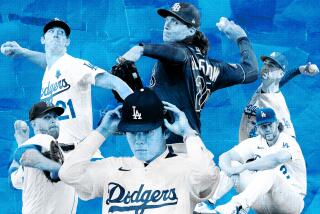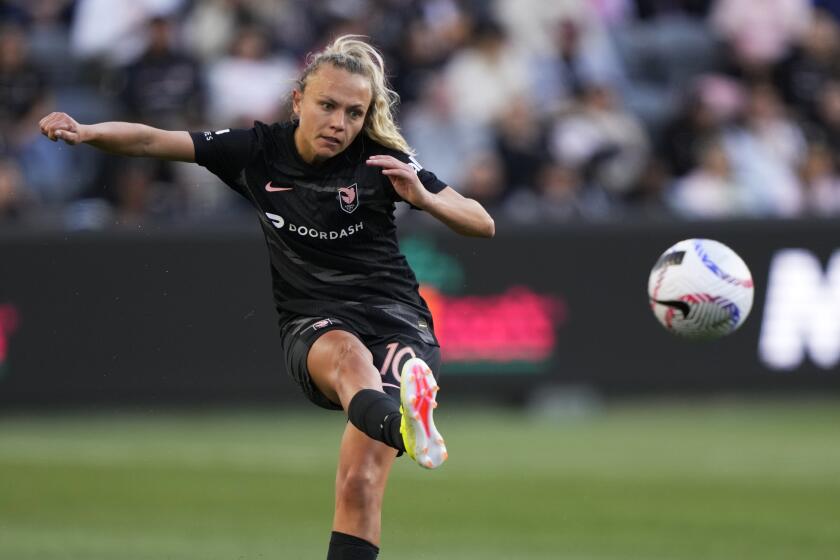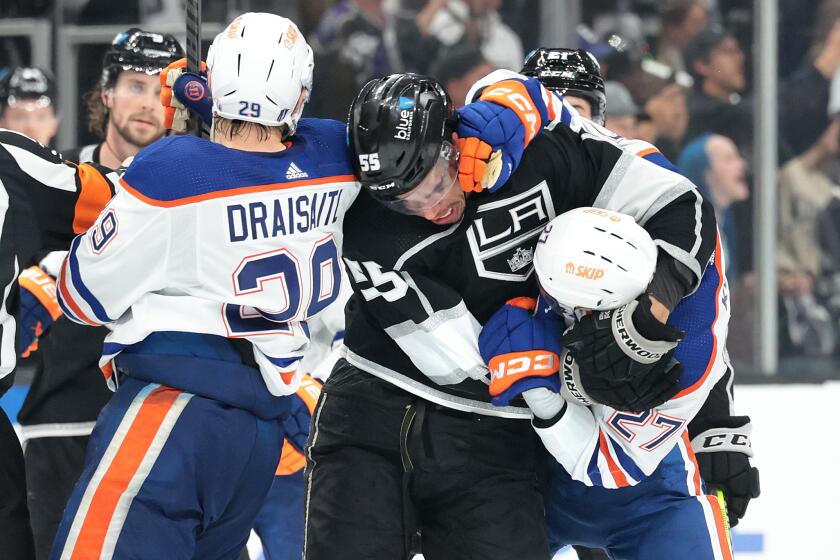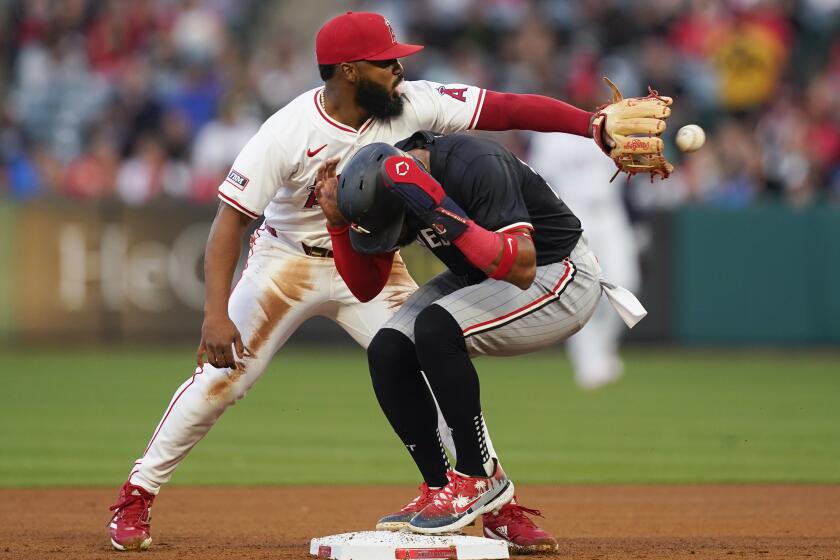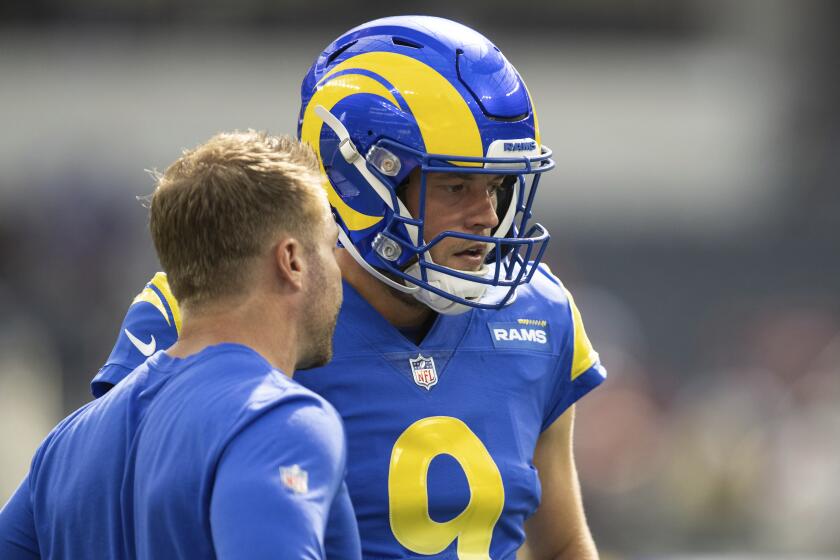Dodgers Q&A: Bidding for team could be sale of the new century
By the time Cy Young Award winner Clayton Kershaw throws the first pitch of the Dodgers’ season April 5, the cloud of uncertainty that has lingered over the team for more than two years should finally have passed.
Frank McCourt, no longer fighting to retain control of the Dodgers, has agreed to select his successor as the team’s owner by the first week in April. The Dodgers are expected to command a record price for a major league club, and the sale process begins in earnest Monday.
What happens Monday?
Opening bids are due. The deadline is a soft one, meaning a well-capitalized prospective buyer would not necessarily be rejected for submitting a bid after Monday. Blackstone Advisory Partners, the investment bank handling the sale for McCourt, is prepared to receive about 20 bids.
What happens from there?
The bids are not binding. However, in addition to a proposed purchase price, the bid should outline how the ownership group would be structured and how the purchase price would be financed. Blackstone will use all that information to decide which bidders will continue in the process.
If McCourt has the final say on the new owner, what role does Major League Baseball play in the process?
MLB has agreed to approve up to 10 bidders. Yet Blackstone is unlikely to clear even that many bidders for MLB consideration, given the time needed for the league to investigate the structure and financing of each potential ownership group. To cover the costs of the investigation, MLB will charge $25,000 to each bidder cleared by Blackstone.
If MLB rejects a prospective bidder cleared by Blackstone, does McCourt have any recourse?
Yes. He can appeal to the mediator who brokered his settlement with MLB.
Do the other MLB owners have a say?
Yes. They can approve or reject any bidder that passes the MLB investigation. However, once the league informs Blackstone of which prospective buyers have been approved by MLB owners, McCourt conducts the final round of bidding and determines the winner. If the winning bidder’s final offer is dramatically higher than the initial offer, MLB reserves the right to review the financing.
Does this all come down to a traditional auction?
Not in public, and probably not in the same room. The Texas Rangers were auctioned in a dramatic evening in bankruptcy court. The Dodgers will be sold behind closed doors, and Blackstone might well solicit finalists to increase their offers by fax or email, without inviting them to look each other in the eyes as they bid.
When will this happen?
There is no set date, but the calendar suggests the end of March. McCourt has agreed to select the winning bidder by April 1 and disclose the winner to the U.S. Bankruptcy Court by April 6.
The high bid wins, right?
McCourt has agreed to accept “the highest and best bid.” By way of example, McCourt bid higher than Arte Moreno did to buy the Angels in 2003, but the Walt Disney Co. selected Moreno because he could write a check, so Disney could get its money faster.
How much money does McCourt need to break even?
That could be a billion-dollar question. In a court filing last week, the Dodgers listed $573 million in debt. McCourt has the option to sell or keep the Dodger Stadium parking lots, but the McCourt entity that owns them carries debt of about $70 million. McCourt’s divorce settlement obligates him to pay his ex-wife $131 million and pay off an $18-million mortgage. He owes $30 million to Fox, to repay a personal loan.
In addition, his attorneys have estimated the tax liability from the sale of the team at “between $80 million and $200 million.” By using the higher number and including the parking lot debt, his total obligations would reach $1.02 billion.
So how might McCourt make out financially?
Just fine, thank you. He and his advisors think the Dodgers could sell for at least $1.5 billion.
twitter.com/billshaikin
More to Read
Get our high school sports newsletter
Prep Rally is devoted to the SoCal high school sports experience, bringing you scores, stories and a behind-the-scenes look at what makes prep sports so popular.
You may occasionally receive promotional content from the Los Angeles Times.


